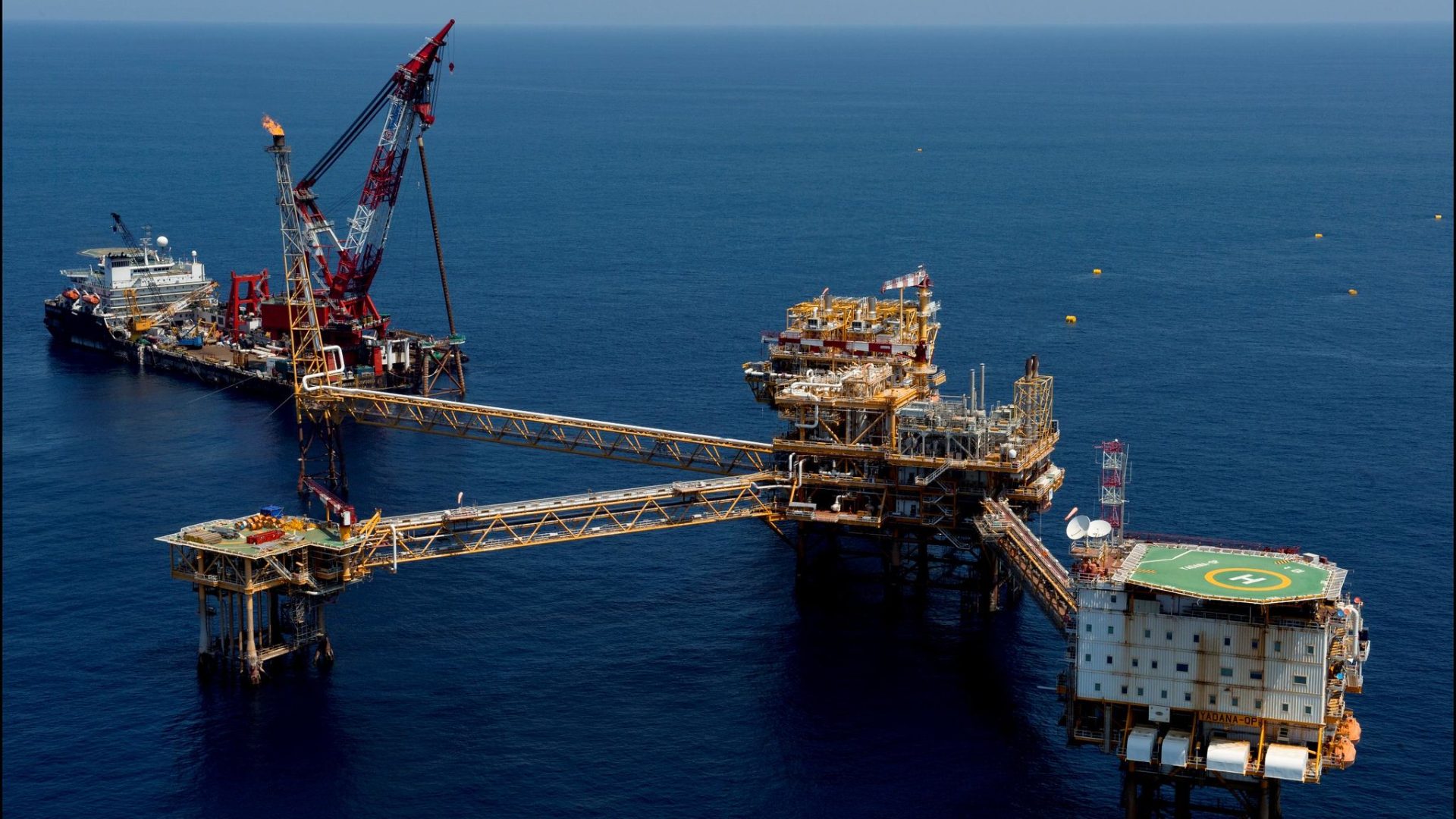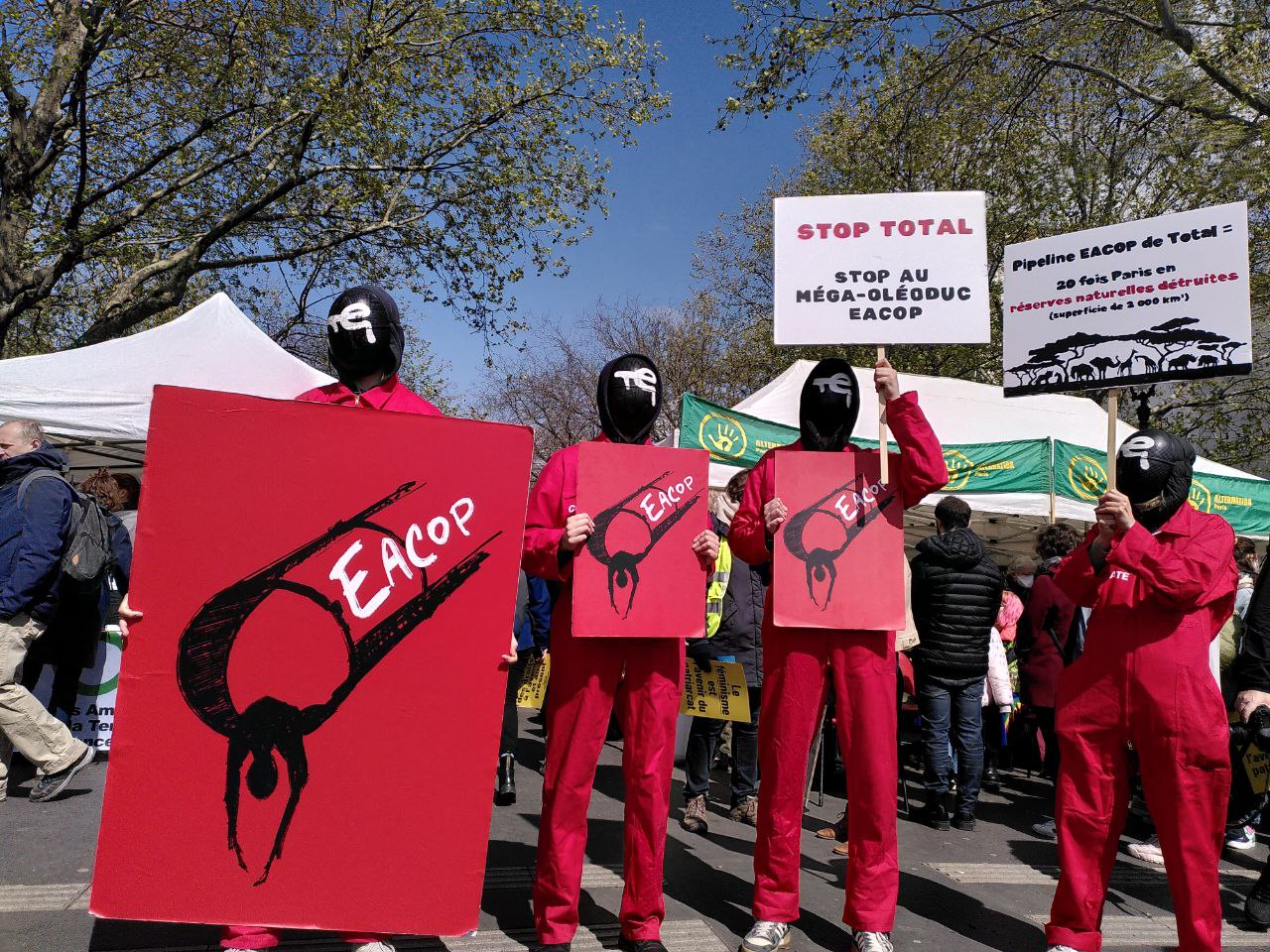
TotalEnergies
Our analysis reveals how TotalEnergies’ climate plans fail to align with international commitments to phase out fossil fuels and to limit global temperature rise to 1.5ºC.
How does TotalEnergies stack up?
Table Key
- Grossly insufficient
- Insufficient
- Partially aligned
- Close to aligned
- Fully aligned
Ambition: Drilling for More Oil and Gas
TotalEnergies does not have a date set to stop exploration, stop approving new extraction projects, or end oil and gas production. TotalEnergies has not set a rapidly declining fossil fuel production target, and therefore its plans are dangerously out of step with climate goals.
TotalEnergies expressly aims to expand its oil and gas production by two to three percent each year from 2024 to 2028. The company stated plans to launch at least five new LNG projects and at least four new oil projects in its most recent annual report, including its proposed liquefied fossil gas project in Mozambique that has been described as a “mega-carbon bomb.”
It’s unthinkable to approve any new fossil fuel development when the majority of oil, gas, and coal in existing fields and mines must stay underground to keep warming to globally agreed limits.
Historical Responsibility
-
7 th
TotalEnergies' Rank
for most cumulative climate pollution in history among ALL investor-owned companies.
Source: Carbon Majors
-
17.6 billion
Tonnes of CO2e Pollution
linked to TotalEnergies' fossil fuel production since the 1930s.
Source: Carbon Majors
-
$ 600 billion
Amount TotalEnergies' Would Owe
if the company were held partially accountable for the climate loss and damages caused by its pollution since 1985 alone.
Source: Climate Analytics
TotalEnergies CEO, Patrick PouyannéWe are very simple guys at TotalEnergies: we see giant resources, we cannot avoid trying to get in.
Integrity: Failing Climate Targets
Do TotalEnergies’ actions add up to a credible pathway to 1.5°C?
TotalEnergies has not set comprehensive targets to ensure its total emissions decline rapidly and consistently.
TotalEnergies’ emissions reduction pledges fall short of what is needed this decade to align with 1.5°C. In fact, the company can meet its 2030 target without even cutting its total climate pollution below current levels.
To meet its climate targets, TotalEnergies plans to rely heavily on the ‘net’ in ‘net zero’ investing in carbon capture and carbon offsets, which may prolong the life of fossil fuels, have a long track record of failure, and perpetuate injustice. Instead, oil and gas companies should take responsibility for reducing their oil and gas extraction and sales as rapidly as possible.
Meanwhile, there is evidence that TotalEnergies is lobbying against climate action, greenwashing, and otherwise maneuvering to undermine the energy transition.
At a glance
-
1971
Year TotalEnergies was reportedly aware of climate consequences
Despite reportedly becoming aware of the potential "catastrophic consequences" from increasing levels of fossil fuel pollution, TotalEnergies subsequently engaged in strategies that undermined and delayed climate action.
Source: Global Environmental Change
-
9
Industry associations lobbying against climate action
TotalEnergies is a member of 9 industry associations that are "Misaligned" on climate policy as of May 2024.
Source: InfluenceMap
People-Centered Transitions: Inadequately Preparing
While many companies have co-opted the language of ‘just transition’ from labor and climate justice movements in recent years, TotalEnergies rates “Insufficient” on its real-world just transition plans and “Grossly Insufficient” on upholding human rights.
TotalEnergies has engaged with the need for a just transition in a limited, partial way, and has adopted a human rights policy with limited safeguards — but faces ongoing allegations of human rights violations.
Independent analysis shows that TotalEnergies has inadequate policies to support and fund just transitions for workers and communities, and to uphold human rights and Indigenous Peoples’ rights.

East African Crude Oil Pipeline
TotalEnergies is the lead company behind the East African Crude Oil Pipeline (EACOP) from Uganda to Tanzania. Affected communities report that the project and related oil extraction projects have already displaced people from their land without timely or adequate compensation, and exacerbated economic and food insecurity. EACOP threatens water resources that more than 40 million people depend on for their livelihoods.
Support legal action against TotalEnergies!
French and African allies are taking TotalEnergies to court under the French corporate duty of vigilance law, in relation to the company's new oil project in Uganda and Tanzania. Will you sign on to support this case?

